There were lots of cousins all more Maureen’s age so they were all moving in work circles or training to teach and I was very much the young lad who turned up after Mass on a Sunday to say hello. If at a few venues a threepence oddly shaped coin found its way in my direction to buy some sweets of course the visits were all very worthwhile. Uncle Bert and Aunty Vera had Tricia who did become a teacher. Aunty Vera Morris had Mary, who became a hairdresser and ran the Admiralty St hairdressers, Uncle Ernie had Biddy who became a librarian and Walter had a son and three daughters. His grandson Michael became a Labour Councillor for St Peter’s Ward in 1991 but that’s for later.
Grandma Riggs was a passionate Irish Republican and when a few whisky’s had been consumed would sing the songs of her time during the uprisings in Ireland. I remember one about a Kevin Barry giving his life for the cause of liberty and she talked about the “black and tans” not the drink the English Army in the conflict in a most strong way about the brutality of the times.
Quite a number of the parish priests were Irish and many had good voices for singing so they were regular visitors especially if there was whisky on offer and they would sing for her. All the family could sing pretty well and as long as the alcohol was flowing usually if a good standard. So Christmas parties were lively affairs especially as Uncle Bert’s birthday fell on Boxing Day more of that later.
On Grandma Ingham’s side of the family she came from a large family of Warren’s out of Charlotte St and Morice Town and they were almost all girls. Amy had no children and ran the Off licence in Fleet St and Grandma generally stayed here going down to Vanguard Terrace in the mornings, where Miss Manning from Keyham Barton lived in the upstairs flat. Hetty lived in Fleet St and had a disabled son Wilfred who grew up with Dad. Aunty Vera’s mum was another sister and two others lived at Stoke and were married to the Williams Brothers who were builders and famous rugby players. Grandma herself had two boys Frank who was a few years older than Dad and went into the RAF and had a very distinguished career settling in York where they had Peter,Pat and John and like me John thinks we were both accidents, and Dad. So the inter connections by marriage brought about quite a strong and lively family and it seemed to me as the youngest that they had a comeradery especially if there was a problem. All sorts of debates and arguments could happen but as soon as there was a problem either individually or collectively then they would stand together.
As a child I was always struck at how different to my Dad his brother seemed.True I only saw him when he visited or was down on holiday but he was so jovial and always seemed to have the answer for anything.John tells me he had the most lovely letter from someone who served with him during the War. He was a Plymouthian and after the City took massive bombing was worried and upset about his family. Apparently Uncle Frank arranged a long week furlough provided he guaranteed to be back on time,so he was able to come home to see his family was safe.
Tag: local
-
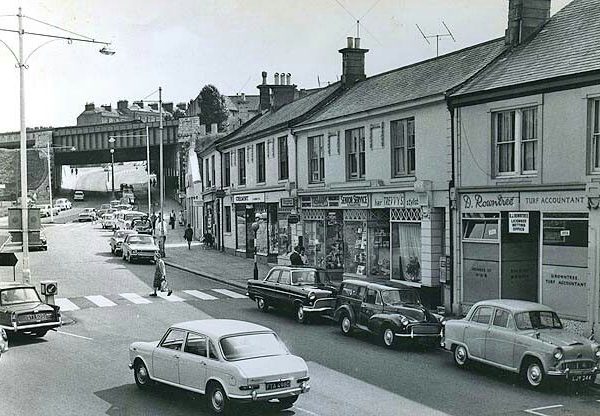
Extended Family
-
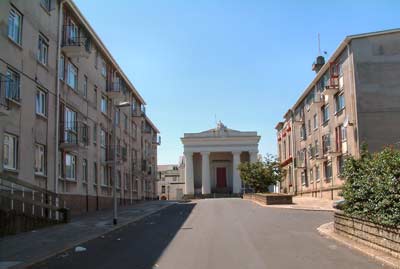
Family Connections
Growing up in both Admiralty St and Renown St there were some special moments that stick in the mind. Maureen leaving for London was a sad occasion the only close person other than Mum and Dad and suddenly I’m on my own. But Christmas was an entirely different occasion, apart from all the Church services and celebrations across the faiths, it was a time when all the family came together in different host homes over the period up to New Year.
This was a big family interconnected across both Grandma Ingham’s line and Granda Riggs line. Mum was one of fourteen children born and lived in Ker St. Of course not all survived an number died in early infancy and it seemed it was accepted as normal and probably was the reason why big numbers of children were born into working class families. Mum was the youngest and her sister Vera was the next up, Bert and Walter, Leonard and Earnie these were the ones who survived. I have no recollection of Grandad Riggs like Grandad Ingham he died before I was born. I recall Leonard as a child he lived at Wombwell Crescent with Grandma and Aunty Vera who became a widow in the War with the loss of her husband and also lived at Wombwell with her daughter Mary. Her surname was Morris. Leonard developed a brain tumour early in my life and whilst I can clearly recall him in stature, without the technology we have today nothing could be done and he died when I was about seven.
All of the male Riggs worked in the Dockyard as labourers or skilled labourers and at this time the Dockyard was employing up to 20,000 people but not all jobs were permanent, in fact when you became classed as an established employee that gave a permanence and security for the future.The opportunity for a mortgage became within reach and the Keyham houses two up two down were within the range of affordability once this status was reached. There were also a number of naval personnel who this also applied to as well so Keyham was a place where Naval and Dockyard workers lived.
Uncle Bert had a house in Fleet St and he had married Vera who was my Dad’s cousin from the Warren side of Grandma Ingham’s family line. Earnie had married and lived at St Budeaux but they couldn’t have children and it was only recently that I found out that his daughter Biddy who was the eldest of my cousin’s was in fact adopted. It would seem that Grandma Riggs true Irish Catholic that she was played a big role with Canon Gaynor to bring pregnant Irish girls out of wedlock to the area to have their babies and the children were adopted here locally. Apparently in Ireland the disgrace would have been overwhelming for the girl and there was no knowing what the family would do, probably thrown her out, so this provided a solution all round.
I had no idea of any of this until only a few years ago when Maureen and Mary related the story, Biddy herself confirmed that she had tried to trace back to her mother and had the name, whatever came from that I don’t know.
Walter was also in the Dockyard and lived in Ernesettle he had three daughters and a son and in later years his Grandson Michael Riggs was elected as a Councillor in 1991,,which we will cover in due time. Walter was the most full of life of all of the brothers, they could sink a lot of beer but he seemed to be entertaining all the time. The one feature they all had was Grandma Riggs white hair they all went pure white and Mum had such fine hair with it,that eventually she took to having some wigs done in white. -
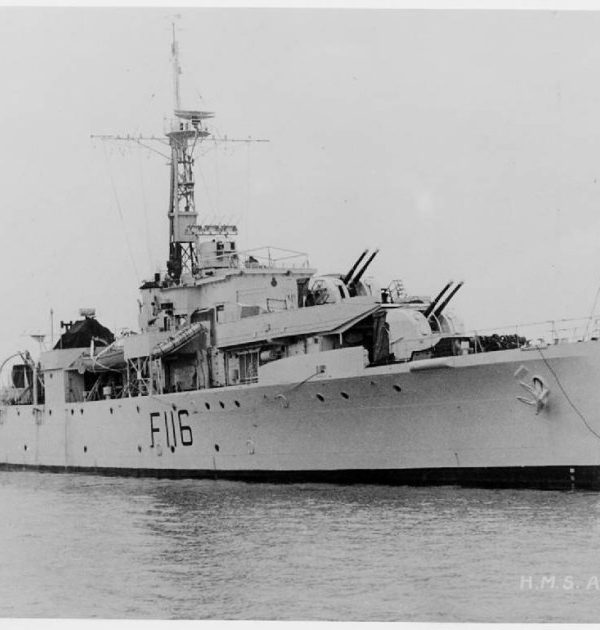
School Plays
Looking through the photo album, I came across a photo of our time at Keyham Barton when I was about 9 or 10 years of age. One of the things Sister Denis was very keen on was drama and speech improvement. I have no idea why that was but we were organised and trained to learn a play called “Zurika the Princess” and I can’t remember at thing of the plot. All I know was I played the King in this drama and having gone back to mum to tell her she set out to do the best King’s outfit you could possibly have. A crown made of strong cardboard covered in gold paper and the four straps of the coronet all liked together in the middle with a ping pong ball wrapped in silver paper holding them all together.A cloak and pantaloons with long white sock material for each leg. It was some costume! The play was a huge success played at the newly built Honicknowle Secondary School and had a run of a week at the Globe inside the Royal Marine Barracks in Stonehouse. For us it was an exciting experience and the ability to go from one side to the other underneath the stage was quite unique.
Looking at those in the photo they were Cederic Chapple, Peter May, Jim O’Connell, Jennifer Smyth, Julianna Hayes, Carmel Collett, Maureen Frost, Janet Harold, Theresa Gemmett, Pat Burchell, Edward Sheppard, Catherine Fielder, Michael Ryan, Richard Cavanague and Martyn Collier. These were all resident in Keyham except for Richard Cavanague, Peter May, Janet Harold and Theresa Gemmett. Edward Shepherd was one of the children of that era who had polio from birth and have calipers to support his lower legs, but he got stronger and better as our time at Keyham went on much was down to everyone supporting him in every way.
We have lost a number of these people over the years but looking at the photo they will always live in my mind for the times we had together growing up as children in Keyham. Some of the boys went on to St Boniface’s with me and we spent another five years there in the 50’s. At a time when things were changing in society very rapidly. Rock and roll happened along with the Tony Curtis hairstyles and flash clothes although I wasn’t allowed because according to mum it looked common. This was my mum who liked Little Richard can you believe when no one else thought he was any good at all. Always a surprise in store with mum.
The summer holidays were a huge time for leisure and because there always seemed to be sunshine we were up at North Down fields for football most of our days and along with families from both North Down Gardens and Royal Navy AVE we would make up teams and spend the day playing. The pitch was on a slope so play tended to go in one direction but these were good times. The Bartrops, the Edges, Michael Ryan, Tony Clark, Ken Squires, occasionally Terry Meager and Mike Cusack from Fleet St would play but the last two were good players who played at quite a high standard later on, as did Ken Squires.
In the light evenings Top park or Alexandra Park was the venue for many of us to meet up, kick around a bit, play a bit of cricket but again it was such a steep site invariably we would end up at the top plateau just sitting around. It was here we watched HMS Amethyst return from the Yangse incident to Devon port badly damaged a very famous incident that had the whole country following on the radio. -
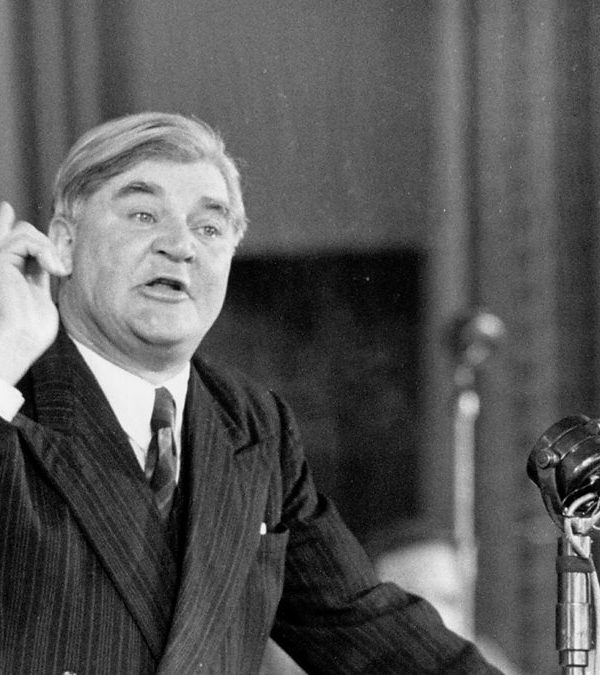
11+
Whilst I was being educated at Keyham Barton, Maureen had passed her 11+ and went to Plymouth High School for Girls which was a very distinguished Grammar School with a very high academic achievement over many years. I wasn’t aware as she was just about starting there when I was born. Much later I discovered that there was a little local difficulty when she made clear that she was not going to go to Notre Dame, the Catholic Grammar. I can imagine the impact that must have had coming from a strong Catholic family not to go to Notre Dame would have been some talking point in the Catholic fraternity and probably would have involved in some discussion with Canon Gaynor who,if nothing else, was a bit of a truant over matters of Faith.
Surprisingly it was always Dad who seemed to be the one who was most forceful about church and the faith generally. He was the convert who became a Catholic on meeting Mum and marrying her. Mum was from a large Irish family with a matriarch mother who had 14 children many of whom died as infants and a little further on we’ll cover all the family tree. But I can understand there would have been an issue around this. Maureen’s wishes prevailed and as I found in later life once she makes a decision there’s nothing going to change it.
I suspect that a good education without all the religious content was really what she wanted and there was the other issue which I only gradually became aware as I grew up,that was how overprotective Dad was towards her. Of course as she grew older and made new friends there were occasions when she would catch the bus into town to meet up. Dad would insist on knowing what time bus she was catching home and if any boy she’d met escort her home, it must have been quite a shock to find Dad waiting for the bus to arrive.
There were no phones as there are now, and anyway we didn’t have one at Admiralty St so if you said you’re going to be on a certain bus you better just be on it or panic would ensue. I do recall whilst I was supposed to be in bed asleep, the heated discussion after her arrival back home on some occasions. Maureen always held her own though and where I would just get a wack she seemed to be able to handle Dad pretty well. Whether he ever realised that I’ll never know, but if I tried to follow the same path it always went very wrong, interpreted as being insolent usually resulted in a sharp pain somewhere.
It must have been in the 1950 General Election when Michael Foot was defending Devonport that Nye Bevan came to Plymouth to support his friend. Not only was the Devonport Guildhall packed to the rafters, but the square totally filled as well outside. There were arrangements put in place so that those outside could hear the speeches so broadcasting speakers were put in place. The local Tory ladies filled the front row apparently to heckle Nye, but he thrived on them all his life and provided humour to the evening. Maureen already active in the Labour Party moved the vote of thanks at that meeting, thus starting her political life.
By the time I was taking my 11+ Maureen had moved to London to work and that changed the way our life felt at Admiralty St. It also meant that I was under more scrutiny than before and needed to be careful not to fall foul of house or religious rules. -
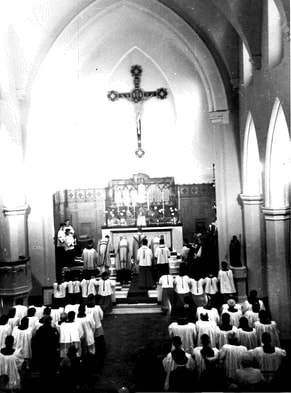
Catholic Teachings
The teaching of the Catholic faith was a very serious business and you needed to be thoroughly taught the fundamentals of the Catacism. That was the handbook of what a sin is and how you should avoid committing any sin at all. At about eight you make your first confession of your transgressions to the priest who was hiding on the other side of the confessional behind a purple curtain. He will give you absolution and a punishment of a decade of the rosary. That’s one Our Father, ten Hail Mary’s and a Glory be to the Father depending on the severity of your sins. When the priest comes out those he has given a whole rosary to for their sins are still there praying for redemption. Now he knows who these naughty ones are. But at seven years old I don’t know what I’ve done that was a sin. Can’t be rude to parents just get a whack, don’t know any swearwords that are worse than what Dad says and what else at seven is there that counts as a sin, it was all very confusing.
When you make it to your first Holy Communion you can only receive if your pure and free from sin. That means you have to make visit to the confessional the day before so that when you get the host it’s going into a sin free body. Some of my friends, who weren’t Catholics related that they didn’t have any of this great singsong, or a fiery sermon threatening hell and damnation. If you did naughty things, while we had confession, ommunion and fiery hell and damnation sermons on Sundays whatever time Mass you went to.About this time a number of us who had grown up together were taught to become altarboys serving the priest saying the Mass which was all in Latin,and we had to learn the whole Mass to respond to the priest on behalf of the congregation,with our backs to them all the way through.
Confirmation really completes the process of being wholly a Catholic and this is done by the Bishop who deals with each child to embrace them into the faith.Bishop’s rarely appear unless something is wrong other than for confirmations or Church dedications.Bishop Grimshaw had been a popular man and when he moved on the new one was a very austere guy called Restioux and most of the congregation disliked him,I know mother couldn’t stand him ” if he thinks I’m going to kiss that ring on his finger he can want on” was mother to Father she definitely wasn’t a fan of this Bishop.
Serving Mass was o k but when we moved to Renown St if anyone didn’t turn up to serve the Mass who was the closest and however early when Mr Duggan came knocking before I could say anything and sometimes I was still in bed and this is the early Mass,mother would say he’ll be there in a minute Mr Duggan,and that’s the end of it.The fact I was down to serve the 11 o clock meant a whole morning in church and a sung high mass at 11, I’m in church all morning.There were some lighter moments I used to get into trouble for,although I always though it was a bit harsh.There were four huge candles on the altar and they were in fact steel tubes painted white and in fact had a spring mechanism with a relatively short actual candle inside.These were lit prior to Mass by a lighted taper on a long pole which also had a snuffer on it as well.I was from time to time known to remove the short candle when no one was around.The result was some poor other altarboy trying hard to light a candle that isn’t there and running out of taper.These candles were a good seven feet above headheight so no indication a candle missing was obvious.
The other trick of mine was to soak the tablet of incense in water for as long as possible before a high sung Mass.Wafting a thurible with a burning insence tablet and the priest adding more powder insence on it stank the whole church out especially at the long high Mass with lots of watching around the altar. Don’t think I ever got caught out but I noticed I was the thurible swinger less often as time went by which I was quite happy about.
The most memorable time was the month of May the celebration of Mary the mother of Jesus.The Church would organise a procession around Renown St and Ocean St carrying a statue of Mary,rose petals would be dropped in front of the procession all the way round and ending in Benediction at the Church.All the children were involved and both streets would be lined on a Sunday afternoon to watch.That has always remained in my mind it obviously made an impact on me. -
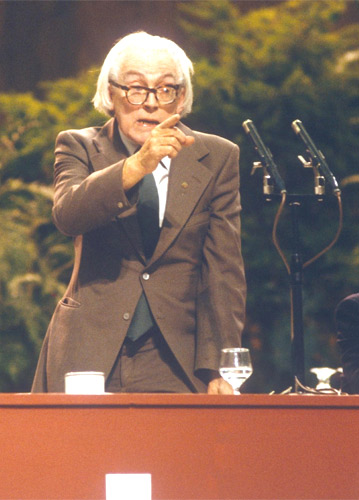
Voting
I found myself at Keyham Barton Primary receiving a Catholic education to sit some monumental exam at 11 which would shape my future. That was the daily scenario at school.
Outside of school time, I could play and relax with my friends from the school providing I had fulfilled all the religious obligations. There was always an end wall to play football against or on better days a kick-about at North Down Recreation fields. At home was a different story, Mum and Dad were strong members of the Labour Party and they had been swept to government in 1945. Dad was the Agent running the elections in Ford Ward, which Keyham was part of.
There would always be things to do around November and December when the voting registers were issued. These would be cut up into streets and stuck onto strawcards about 12″ X 8″ with paste and and a brush. These were the canvas cards which from about March would be used by canvas teams in the election for Council in May. One councillor would retire to seek re election or retire completely each year. If three councillors from the same party won seats, an Alderman would be appointed from that party and a by election held to replace a councillor. The Alderman was a six year period which meant in effect the senior members became Aldermen with no re election worries. Eventually this system was abolished but was in strong force in the mid 40’s.
Winter nights there was plenty to do and the preparation for the next election occupied quite a few nights in cold winter.
What also occupied quite a few winter nights was the Co-op Divi day. By now mum had taken to do most of her grocery shopping at the Co-op in Fleet Street and depending on the amount spent during the years stamps were issued to signify your resulting discount or dividend. At this time double-sided sticky sheets were given out. Like a large fly trap paper only touch a liquid near it and anything would stick to that. All these stamps had to be stuck on and passed in to the shop. The co-op office would then issue and bonus dividend on your account. You could let this accrue and go against a new purchase in the new big city centre Co-op shop on Royal Parade.
Winters were not too bad and there was always the radio to listen to, something for my age early on followed by an adventure series of Dan Date. Dad in the meantime would be marking up in blue those who had consistently voted Tory so we didn’t waste any time on them and if they did vote our way well that was a bonus you didn’t expect.
Maureen was also very active in the Party and was part of a speaking contest within the Party reaching the finals in Bristol a number of times. A team of three a chair, a speaker and a proposed of the vote of thanks from various constituencies around the region competed for a shield for the best team. I can recall Maureen who has always been an excellent orator was with Betty Passmore who also lived in Admiralty St and I think Kathleen O Donnel from Moor View.
Going back to the canvas cards, a system created by Harry Wright later. Sir Harry Wright was introduced. When the canvas was completed,those voting Labour were typed up on a typewriter or handwriten on a pad of six sheets of paper with carbons between each sheet.On election day these were used to do at least six knockups on those not crossed off from the polling station doors where voters numbers were taken.
During 1943 when Michael Foot was elected for Devon port his friend Ian Mikado came to support Michael and in the process saw this very crude system of record keeping. After returning to Reading where he too was elected he developed the system and it became the party’s system nationally.The fact that it was known as the Reading pad system always irked those in Plymouth and resulted in friendly friction between the two cities.